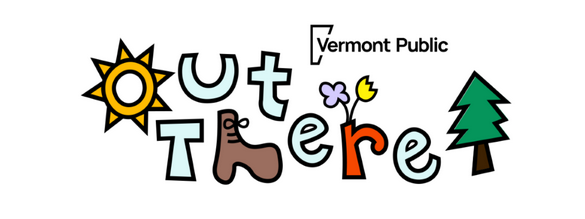This is the web version of our email newsletter, Out There! Sign up to get our monthly dose of all things environment — from creatures you might encounter on your next stroll, to a critical look at the state's energy transition, plus ways to take part in community science and a roundup of local outdoor events.
🌘 It’s Thursday, May 22. Here’s what’s on deck:
- A pause for electric vehicle mandates
- A free solar-powered ferry
- Cold-hardy butterflies
But first,
A mysterious resurgence

Lake trout were once plentiful in Lake Champlain. Jesuit priests and naturalists noted their abundance in the early 1800s. Then, within a century, they were gone. There’s no complete explanation for why native lake trout disappeared — scientists say pressures from fishing, predation from sea lamprey, and a tiny invasive fish called alewife that led to a nutritional deficiency in young lake trout don’t fully explain the collapse.
In the 1950s, New York and Vermont started stocking the species in Lake Champlain. Over decades, they introduced hundreds of thousands of fish, but the wild lake trout population never rebounded. Young fish born in the lake weren’t surviving to adulthood.
That was until about a decade ago. Today, more than half of the lake trout found in Lake Champlain were born there. Some say their resurgence is just as inexplicable as when they disappeared.
- 🐟 Researchers know the fish are spawning on their own because they find eggs and yearling trout on the lake’s reefs and break walls. Surveys show those baby fish are making it into the adult population.
- 🐟 The state’s stocking program might have been a boon to the state’s lamprey population — and led to more predation on lake trout. The state says its lamprey control program is helping more lake trout survive today.
- 🐟 This spring, the state announced it would stop its stocking program for lake trout after this year. That’s in an effort to avoid having too many predator fish than populations of smaller fish like smelt, alewife and sculpins can support.
In other news
🛑 Vermont hits the brakes on electric vehicle mandates: A few years ago, Vermont adopted a rule requiring just over a third of vehicles delivered to car dealers to be zero-emission, starting for 2026 models. This month, Gov. Scott said never mind — in an executive order, he said the state wouldn’t issue fines or penalties to dealers who don’t comply. Vermont is also postponing zero-emission mandates for large trucks until 2027, at the earliest.
📜 Trump administration sues Vermont over law seeking payment from fossil fuel companies: Vermont was the first state in the country to pass legislation seeking climate change damages from large fossil fuel companies based on their relative carbon emissions. The Trump administration has filed a federal lawsuit saying that Vermont’s law – along with similar actions in three other states — is illegal because it usurps federal power.
⛴️⚡ A solar-powered ferry: Passengers can take an hour-long ride on the first zero-emission ferry in New England as soon as next year. The project will connect several towns along the Merrimack River in Massachusetts and is possible because of federal grants. Rides will be free when the ferry service launches.
In your backyard

Get out there
🐦🌷 Spring birding: There’s a smattering of walks you can join nearly every day over the next week:
- Stroll on a sunset bird walk in Huntington tonight (Thursday, May 22) at 7 p.m.
- Start your morning with casual birding this Friday, May 23 at 7 a.m. in Berlin Pond. Or if you miss it, there’s another outing next Friday morning at 7 a.m. in Montpelier.
- Join a morning bird walk Saturday, May 24 at 7:30 a.m. at the Catamount Community Forest in Williston or the following Saturday at 8 a.m.
- There are regularly occurring walks most Tuesday and Saturday mornings in Rutland County, including on Tuesday, May 27 at 7:30 a.m. at the Castleton University trails and Saturday, May 31 at 7 a.m. at the West Rutland Marsh.
🌱 Plant sales and seed swaps:
- A plant sale in Barre runs Friday morning, May 23 from 6:30 to 10 a.m.
- Bring your extra seeds or transplants for a swap at the library in Marshfield starting at 10 a.m. on Saturday, May 31.
🐝🎉 Learn about bees and all things pollinators: Shelburne Farms is hosting a pollinator celebration on Saturday, May 31 starting at 10:30 a.m. featuring workshops and talks on wild bee identification, the history of beekeeping in the state, a campaign to ban certain pesticides and more.
Credits: This week’s edition was put together by Lexi Krupp with lots of help from the Vermont Public team, including graphics by Laura Nakasaka and digital support from Zoe McDonald. Editing by April McCullum.





